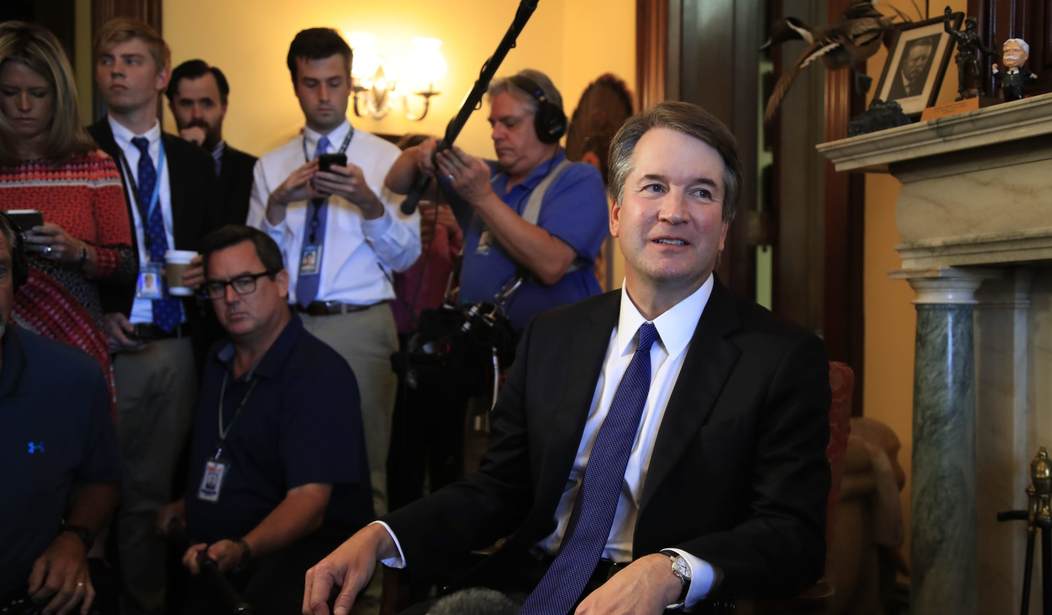WASHINGTON — Both parties have announced their slate of witnesses for Supreme Court nominee Brett Kavanaugh’s confirmation hearing, and Senate Judiciary Committee Democrats have added President Nixon’s former White House counsel to the list.
Kavanaugh’s hearing is scheduled for 9:30 a.m. Tuesday. He’ll be introduced to the committee by former Secretary of State Condoleezza Rice, Sen. Rob Portman (R-Ohio) and D.C. attorney Lisa Blatt, who has argued for Kavanaugh’s confirmation as a liberal feminist because she says Kavanaugh is the GOP equivalent of Merrick Garland, the Obama pick whose nomination was stalled for several months by Senate Republican leaders until a new president was in office.
After Kavanaugh’s testimony, the committee will hear from the chairman and principal evaluator of the American Bar Association.
Following that will be three separate panels with witnesses invited by the majority and the minority. Those speaking on behalf of Kavanaugh include former solicitors general Ted Olson and Paul C. Clement.
Ranking member Dianne Feinstein (D-Calif.) announced today that Democrats have invited John Dean, “who will speak about the abuse of executive power,” according to Feinstein’s office.
President Trump recently called Dean a “rat” on Twitter for becoming a key witness for the prosecution in the case against Nixon. Dean tweeted back at Trump, saying “I still have trouble using the title Mr. President for someone installed by Putin” before adding, “Nixon knew I was meeting with prosecutors, b/c I told him. However, he didn’t think I would tell them the truth!”
Other witnesses called by the Dems at the Kavanaugh hearing include Congressional Black Caucus Chairman Cedric Richmond (D-La.), “who will speak on affirmative action, civil rights and voting rights,” several witnesses discussing abortion rights, and Parkland, Fla., mass shooting survivor Aalayah Eastmond.
Lawmakers could start questioning Kavanaugh on Wednesday.
On Tuesday, Senate Majority Whip John Cornyn (R-Texas) said he thought Chairman Chuck Grassley (R-Iowa) has “done a good job shepherding this nomination through the committee, making not only Judge Kavanaugh, but also his record, available to members of the Judiciary Committee.”
“But just to point out that the best evidence of how Judge Kavanaugh will perform on the bench is how he has done in the last 12 years as a member of the D.C. Circuit Court of Appeals. He’s written 307 opinions. All of that is before every member of the committee,” Cornyn said.
“And in total, there are more than 400,000 individual pages of documents that have been produced. Judge Gorsuch had the most until now, of 180,000 pages of documents. So this has been the most productive in terms of the documents vetting process, of any nominee for the United States Supreme Court.”
Minority Leader Chuck Schumer (D-N.Y.) charged on the Senate floor Tuesday that Grassley “has so far frustrated our efforts to get full access to the judge’s records.”
“First, he requested only 10-15 percent of Kavanaugh’s White House record, unilaterally declaring the bulk of his time in the White House irrelevant,” Schumer said. “As the National Archives works through that request, the Judiciary Committee has been accepting documents from a lawyer hired by the Bush library to pre-screen documents. That lawyer, Mr. Burck, who counts Steve Bannon, Reince Priebus, and White House Counsel Don McGahn among his clients, has provided only 6 percent of Kavanaugh’s White House record to the Judiciary Committee, recently declaring some documents ‘personal,’ rather than presidential records – a determination that we have been given no basis for.”
Of those 6 percent, he added, a third have been deemed confidential to committee members and can’t be made public.
“Senator Grassley has made disclosure of things throughout the executive branch a hallmark of his career,” Schumer said. “And yet now they make the burden of proof on those who want to disclose. And the presumption is that documents won’t be disclosed. It is so wrong.”









Join the conversation as a VIP Member